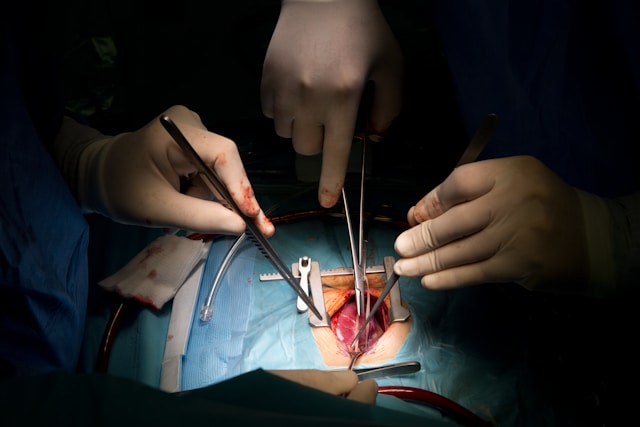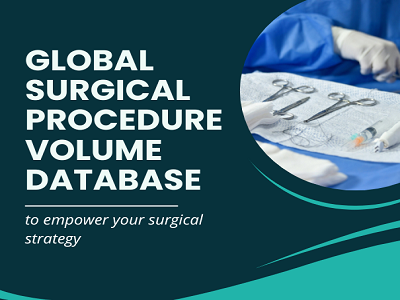How to Select the Best Vascular Surgeon for Endovascular Procedures

Strong 8k brings an ultra-HD IPTV experience to your living room and your pocket.
When it comes to matters of the heart and blood vessels, precision and expertise make all the difference. Endovascular surgery is a rapidly evolving field that uses minimally invasive techniques to treat conditions such as blocked arteries, aneurysms, and poor circulation in the legs.
The success of these procedures depends not only on technology but also on the skill and judgment of the surgeon performing them.
Selecting the right vascular surgeon for endovascular surgery is, therefore, one of the most important decisions a patient can make.
From qualifications to hospital facilities, every detail matters. Let us explore how to make an informed choice.
What is an Endovascular Procedure?
Endovascular procedures are minimally invasive treatments performed inside the blood vessels. Instead of open surgery, a vascular surgeon uses catheters, balloons, and stents inserted through small incisions, usually in the groin or wrist, to restore blood flow or repair damaged vessels.
Endovascular treatment is widely used for conditions such as peripheral artery disease, aortic aneurysms, and carotid artery disease. These procedures offer faster recovery, shorter hospital stays, and reduced risk compared to traditional surgery.
However, their success relies heavily on the surgeon’s skill and the quality of the endovascular surgery center.
Surgeon’s Qualifications and Credentials
The first factor to consider is the surgeon’s qualifications. A vascular surgeon must undergo years of specialized training beyond general surgery.
Look for board certification in vascular surgery and additional training in endovascular surgery procedures. These credentials demonstrate that the surgeon has met rigorous standards and stays updated with advancements in the field.
Experience and Specialization
Experience is as important as qualifications. A surgeon who has performed a wide range of endovascular procedures is more likely to handle complex cases effectively. Ask about the number of procedures performed, success rates, and outcomes.
Surgeons who specialize in both open and endovascular vascular surgery provide comprehensive care, ensuring patients receive the most suitable treatment for their condition.
Evaluate the Hospital or Clinic
The hospital or clinic where the procedure takes place is just as important as the surgeon. A dedicated endovascular surgery center should be equipped with advanced imaging facilities, catheterization labs, and skilled support staff.
The presence of a multidisciplinary team, including cardiologists, radiologists, and anesthetists, ensures safer outcomes. Accreditation and recognition by healthcare authorities are also indicators of high standards.
Patient Reviews and Testimonials
Real experiences from other patients provide valuable insight into the surgeon’s expertise and care. Look for testimonials that mention before and after endovascular surgery outcomes, communication style, and the level of support provided throughout the process.
Positive patient stories can offer reassurance, while negative reviews may highlight areas of concern. Reliable sources include hospital websites, independent healthcare platforms, and word-of-mouth recommendations.
Conclusion
Choosing the best vascular surgeon for endovascular treatment is not a decision to rush. It requires careful consideration of qualifications, experience, hospital facilities, and patient feedback. A skilled endovascular specialist not only improves procedural success but also ensures safety and long-term recovery.
I have always believed that endovascular surgery is more than just a medical procedure; it is a partnership between patient and surgeon.
In my own practice as Dr. Sumit Kapadia, I have witnessed how informed decisions and timely interventions can change outcomes, helping patients regain confidence in their health and quality of life. By choosing wisely, patients can look forward to improved circulation, faster recovery, and lasting results.
FAQs
What is the difference between a vascular surgeon and an endovascular surgeon? A vascular surgeon is trained to perform both open surgeries and minimally invasive procedures, while an endovascular surgeon focuses specifically on catheter-based techniques inside blood vessels.
Why is choosing the right vascular surgeon important? The surgeon’s expertise directly impacts success rates, safety, and recovery outcomes. A well-trained surgeon ensures the best possible results for complex vascular conditions.
What qualifications should I look for in a vascular surgeon? Look for board certification in vascular surgery, specialized training in endovascular surgery, and experience in performing a variety of procedures.
Are endovascular procedures safe? Yes, they are generally safe when performed by qualified endovascular specialists in a well-equipped center. Risks are significantly lower compared to open surgery.
What should I expect after the procedure? Most patients experience shorter recovery times, minimal pain, and quicker return to normal activities. Follow-up care is essential to monitor long-term outcomes.
Note: IndiBlogHub features both user-submitted and editorial content. We do not verify third-party contributions. Read our Disclaimer and Privacy Policyfor details.







